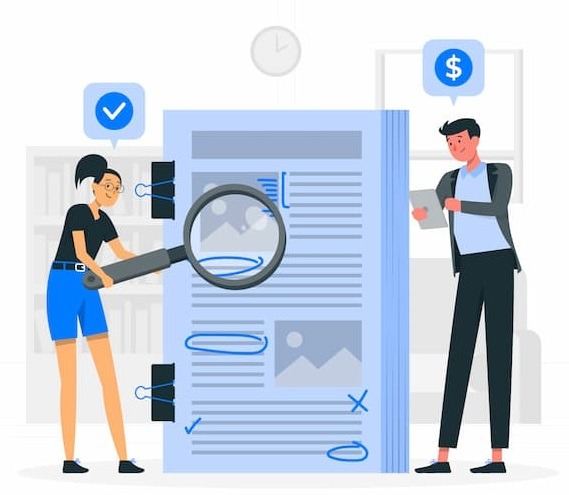Understanding Corporate Pension Germany Options
A company pension scheme, also known as „betriebliche Altersvorsorge“ (bAV) in Germany, plays a crucial role in retirement planning for employees.
It is a supplementary pension plan provided by employers, offering numerous benefits and tax advantages.
This article will explore the different options available for corporate pension schemes in Germany and help you understand how they can help you secure your retirement future.
Inhalt dieser Seite











From advising employees to reviewing contracts.
These customers will never have to worry about managing their occupational pension scheme again.
Key Takeaways:
- Corporate pension schemes in Germany are a form of retirement savings offered by employers.
- These schemes are subsidized by the state and employers, providing attractive tax advantages for employees.
- Employees can contribute a portion of their gross salary towards their pension plan, resulting in immediate tax benefits.
- There are various implementation channels for company pension schemes, with Direktversicherung being the most common.
- Employers must contribute at least 15% of the employee’s contributions to the scheme.
- Company pension schemes offer additional financial security in retirement and are an important part of retirement provision in Germany.
Find the best company pension plan.
Take advantage of our expert knowledge and get individual advice.









+ many more insurance providers
Benefits of a Company Pension Scheme
One of the main advantages of a company pension scheme in Germany is the tax benefits it provides. Contributions to the scheme are made from the employee’s gross salary, resulting in savings on taxes and social insurance premiums. The contributions are untaxed during the savings phase, allowing employees to invest a higher amount with little personal effort.
Additionally, employers are required by law to contribute at least 15% of the employee’s contributions to the scheme, providing attractive co-payments. Many employers go beyond this requirement and offer additional subsidies or lump sum payments. These contributions from employers can add up to 4% to 10% of the employee’s gross salary.
„The company pension scheme is a win-win for both employees and employers. Employees can enjoy tax benefits and attractive co-payments, while employers can contribute towards their employees‘ financial security in retirement.“
Corporate Pension Experts for Germany
We at Insurancy are your English-speaking insurance broker from Germany.

What you can expect from us
- No Paper
We work 100 % digitally and your insurance policies are all stored centrally in our app – goodbye file folders! - Do something good with your insurance policies
We donate 20 % of our profits to social and sustainable organisations. Of course, without making it more expensive for you. - Free of charge
Our service is completely free of charge for you, as we are financed purely by the insurance companies. - Independent
We can advise you independently and have access to almost all insurance companies.
Types of Company Pension Scheme in Germany
When it comes to implementing a company pension scheme in Germany, there are several options available. Each implementation route offers its own advantages and considerations, allowing employers to choose the one that best aligns with their preferences and objectives.
Direktversicherung
The Direktversicherung is the most common implementation route for company pension schemes in Germany. In this option, the employer takes out a private pension insurance policy on behalf of the employee. Contributions are made from the employee’s gross salary, resulting in tax advantages and savings on social insurance premiums. The employer is required by law to contribute at least 15% of the employee’s contributions to the scheme, making it an attractive choice for both employers and employees.
Pensionskasse
The Pensionskasse is another option for implementing a company pension scheme. It involves the establishment of a pension fund managed by a board of trustees. The fund’s assets are invested, and the payout to employees is based on the fund’s performance. The Pensionskasse offers stability and transparency, making it a popular choice for employers seeking long-term retirement benefits for their employees.
Pensionsfonds
The Pensionsfonds is similar to the Pensionskasse but can serve multiple employers and employees. It functions as a separate legal entity and provides a wide range of investment options. The flexibility of the Pensionsfonds makes it an attractive choice for employers looking to tailor the pension benefits to their specific workforce.
Unterstützungskasse
The Unterstützungskasse is a support fund that offers a high degree of flexibility in terms of contribution levels and investment strategies. Employers have greater control over the design and administration of the pension plan, allowing them to customize the benefits according to their requirements. The Unterstützungskasse is particularly suitable for employers who value flexibility and want to offer a personalized pension scheme to their employees.
Direct Commitment
The direct commitment is a simple approach where the employer commits to pay the employee a salary when they retire. Unlike other implementation routes, the direct commitment does not involve the establishment of a separate pension plan or investment vehicle. This option is straightforward and offers simplicity for both employers and employees.
In summary, the various implementation routes of company pension schemes in Germany provide employers with flexibility in designing retirement benefits for their employees. From the popular Direktversicherung to the versatile Pensionskasse, Pensionsfonds, Unterstützungskasse, and direct commitment, there is a solution to fit every employer’s objectives and preferences.
Advantages and Disadvantages of Company Pension Schemes
Company pension schemes in Germany offer several advantages for employees. Let’s take a closer look at the benefits:
- Additional Financial Security: One of the primary advantages of a company pension scheme is the provision of additional financial security in retirement. By contributing to a pension plan, employees can build a nest egg to supplement their retirement benefits.
- Tax Advantages: Company pension schemes provide tax advantages that allow employees to invest more from their gross salary. Contributions made to the scheme are deducted from the employee’s taxable income, resulting in potential savings on income tax.
- Employer Contributions: Many company pension schemes involve co-payments from the employer. This means that the employer also contributes to the pension plan, providing attractive benefits and enhancing the overall retirement savings.
- Portability: Company pension schemes in Germany offer portability, allowing employees to take their pension plan with them if they change jobs. This offers flexibility and ensures continuity in retirement savings.
Despite the advantages, it is important to consider the potential disadvantages of company pension schemes:
- Income Tax and Social Security Contributions: It is worth noting that pension payments received from a company pension scheme are subject to income tax and social security contributions in Germany. Therefore, employees should be aware of the potential deductions when planning for retirement.
- Dependence on Employer’s Financial Stability: The security of pension benefits in a company pension scheme can be influenced by the financial stability of the employer. In the event of employer insolvency, there may be risks associated with the payment of pension benefits.
It is crucial for employees to carefully evaluate the advantages and disadvantages of company pension schemes before making a decision. By considering these factors, individuals can choose the option that best suits their needs and goals for a secure retirement.
Advantages and Disadvantages of Company Pension Schemes
| Advantages | Disadvantages |
|---|---|
| Additional Financial Security | Income Tax and Social Security Contributions |
| Tax Advantages | Dependence on Employer’s Financial Stability |
| Employer Contributions | |
| Portability |
Company Pension Scheme Regulations in Germany
In Germany, company pension schemes are subject to strict regulations to ensure the safety and stability of the retirement benefits provided to employees. These regulations aim to protect both the interests of the employees and the financial well-being of the pension scheme.
Employers who offer company pension schemes are required to provide guarantees for the benefits they promise to their employees. This ensures that employees can have confidence in the security of their retirement savings and the promised pension payments.
A key aspect of the regulations is the establishment and management of the company pension plan. The implementation route chosen by the employer determines the legal framework and governance structure of the pension scheme. For example, the popular Direktversicherung model involves transferring the responsibility for managing the pension plan to a reputable life insurance provider.
In addition to the Direktversicherung model, there are other implementation routes available for company pension schemes in Germany. These include Pensionskasse, Pensionsfonds, Unterstützungskasse, and direct commitment options. Each implementation route has its own set of legal requirements and considerations, providing employers with flexibility in designing their pension plans.
Ensuring compliance with the regulations is crucial for employers. They must carefully assess the risks and benefits associated with each implementation route and select the one that aligns with their objectives and meets the legal requirements.
Furthermore, there are insolvency protection measures in place to safeguard the pension benefits in case of employer insolvency. These measures provide an additional layer of security for employees, reassuring them that their retirement savings will be protected even if their employer faces financial difficulties.
Insolvency Protection Measures in Germany
Insolvency protection is a fundamental aspect of the German pension system. It ensures that employees‘ pension benefits remain secure, even if their employer becomes insolvent.
The insolvency protection measures vary depending on the type of company pension scheme. For instance, in the case of the Direktversicherung model, the pension benefits are covered by the Insolvency Protection Association for Insurance Companies (Protektor) in the event of an insurer’s insolvency. This provides employees with a safety net, assuring them that their pension savings are protected.
Similarly, for other implementation routes like Pensionskasse and Pensionsfonds, there are separate insolvency protection funds or associations that safeguard the pension benefits in case of employer insolvency.
These insolvency protection measures play a vital role in instilling confidence in the company pension scheme and providing employees with the reassurance that their retirement savings are secure.
| Implementation Route | Insolvency Protection Mechanism |
|---|---|
| Direktversicherung | Insolvency Protection Association for Insurance Companies (Protektor) |
| Pensionskasse | Individual pension insurance institutions |
| Pensionsfonds | Separate legal entities and insolvency protection funds |
| Unterstützungskasse | Employer’s commitment to fulfill pension obligations |
| Direct Commitment | Employer’s responsibility to pay pension benefits |
The Importance of Compliance with Regulations
Compliance with the regulations governing company pension schemes in Germany is imperative for employers. By adhering to the legal requirements, employers ensure the fair treatment of employees, maintain the stability of the pension scheme, and protect the retirement benefits of their workforce.
The careful consideration of the risks and benefits associated with each implementation route allows employers to make informed decisions while designing and managing their company pension plans. It is crucial to seek expert advice and consult legal professionals to ensure compliance with the applicable regulations and select the implementation route that best suits the needs and objectives of the company and its employees.
In conclusion, the regulations in Germany surrounding company pension schemes prioritize the security and stability of retirement benefits. Employers‘ guarantees and compliance with legal requirements, along with insolvency protection measures, contribute to employees‘ peace of mind and trust in the company pension scheme.
Choosing the Right Company Pension Scheme
When it comes to selecting a company pension scheme, employers must consider various factors and take into account their objectives, preferences, and the needs of their employees. The chosen implementation route plays a significant role in aligning with employer goals and the size of the company. There are several options to choose from, including Direktversicherung, Pensionskasse, Pensionsfonds, Unterstützungskasse, or direct commitment. Each route has its own advantages and considerations.
Employers should not overlook the financial stability and reputation of the provider or institution that will handle the pension plan. It is crucial to collaborate with experts in the field of corporate pension schemes who can offer valuable insights and guidance. Additionally, compliance with regulations for the chosen implementation route is essential to ensure the legal and financial security of the company pension scheme.
By carefully evaluating these considerations and seeking expert advice, employers can select the most suitable company pension scheme that meets their objectives and provides retirement benefits to their employees.
Remember, choosing the right company pension scheme is a crucial decision that can impact the financial well-being of both employers and employees in the long run.
Conclusion
The company pension scheme in Germany plays a crucial role in retirement provision, offering employees additional financial security and peace of mind. With tax advantages and attractive co-payments from employers, it enables employees to save for their future and build up a retirement nest egg. By carefully selecting the right implementation route and adhering to regulations, employers can provide their employees with a valuable retirement benefit.
Understanding the advantages, disadvantages, and requirements of company pension schemes is essential for both employers and employees in making informed decisions. The tax benefits, portability, and potential employer contributions make corporate pensions in Germany a powerful tool for ensuring financial security in retirement.
With the right corporate pension scheme, individuals can enjoy the benefits of retirement provision and have peace of mind knowing they have taken steps to secure their financial future. It is crucial for employers and employees to work together in navigating the options and regulations of the company pension scheme to maximize the retirement benefits for all.
FAQ
What is a company pension scheme in Germany?
A company pension scheme, also known as „betriebliche Altersvorsorge“ (bAV) in Germany, is a supplementary pension plan provided by employers to their employees. It is subsidized by the state and the employer, allowing employees to defer a portion of their gross salary into a pension plan.
What are the tax benefits of a company pension scheme in Germany?
Contributions to the scheme are made from the employee’s gross salary, resulting in savings on taxes and social insurance premiums. The contributions are untaxed during the savings phase, allowing employees to invest a higher amount with little personal effort.
How much do employers contribute to a company pension scheme in Germany?
Employers are required by law to contribute at least 15% of the employee’s contributions to the scheme. Many employers go beyond this requirement and offer additional subsidies or lump sum payments, which can add up to 4% to 10% of the employee’s gross salary.
What are the implementation routes for company pension schemes in Germany?
There are several implementation routes for company pension schemes in Germany, including Direktversicherung, Pensionskasse, Pensionsfonds, Unterstützungskasse, and direct commitment. Each has its own advantages and considerations, and the choice depends on the employer’s preferences and objectives.
What are the advantages and disadvantages of company pension schemes in Germany?
Company pension schemes offer additional financial security in retirement, tax advantages, and portability. However, pension payments are subject to income tax and social security contributions, and the employer’s financial stability can impact the security of the benefits.
How are company pension schemes regulated in Germany?
Employers are required to guarantee the benefits they provide and comply with legal requirements. The implementation route chosen determines how the company pension plan will be established and managed. There are also insolvency protection measures in place to safeguard the pension benefits in case of employer insolvency.
How can employers choose the right company pension scheme in Germany?
Employers should evaluate their objectives and preferences, consider the needs of their employees, and choose an implementation route that aligns with their goals. They should also consider the financial stability and reputation of the provider or institution that will handle the pension plan.
What are the benefits of a company pension scheme in Germany?
A company pension scheme provides additional financial security in retirement, tax advantages, and attractive co-payments from employers. It allows employees to save for retirement with a higher amount from their gross salary and enjoy employer contributions.
Individual offer for occupational pension provision
Expert knowledge, access to exclusive concepts and independent advice.
Alles rund um das Thema betriebliche Altersvorsorge
The topic of occupational pension schemes is extensive and complicated
We look after your employees, take care of the administration and always work closely with you.
No surprises, no annoying paperwork.
So erreichst du uns
Wir beraten dich Montag bis Freitag von 8 bis 18 Uhr
Oder buche ein kostenloses Webmeeting
- Berechnung aller Kosten Live und per Screensharing
- Lerne uns persönlich, live und in Farbe kennen












